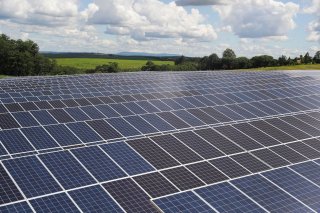The Political Economy of Green Technology
Let's take a closer look.
This would help decrease demand for global transports – a major source of greenhouse gas emissions – while increasing local diversity and resilience and encouraging community integration. It would no longer make low wages and lax environmental legislation competitive advantages in world trade, as is currently the case.
Immunising local communities and ecosystems from the logic of globalised capital flows may be the only feasible way of creating a truly “post-capitalist” society that respects planetary boundaries and does not generate deepening global injustices.
Re-localising the bulk of the economy in this way does not mean that communities won’t need electricity, for example, to run hospitals, computers and households. But it would dismantle most of the global, fossil-fuelled infrastructure for transporting people, groceries and other commodities around the planet.
This means decoupling human subsistence from fossil energy and re-embedding humans in their landscapes and communities. In completely changing market structures of demand, such a shift would not require anyone – corporations, politicians, or citizens – to choose between fossil and solar energy, as two comparable options with different profit margins.
To return to the example of Morocco, solar power will obviously have an important role to play in generating indispensable electricity, but to imagine that it will be able to provide anything near current levels of per capita energy use in the global North is wholly unrealistic. A transition to solar energy should not simply be about replacing fossil fuels, but about reorganising the global economy.
Solar power will no doubt be a vital component of humanity’s future, but not as long as we allow the logic of the world market to make it profitable to transport essential goods halfway around the world. The current blind faith in technology will not save us. For the planet to stand any chance, the global economy must be redesigned. The problem is more fundamental than capitalism or the emphasis on growth: it is money itself, and how money is related to technology.
Climate change and the other horrors of the Anthropocene don’t just tell us to stop using fossil fuels – they tell us that globalisation itself is unsustainable.
To hear about new Insights articles, join the hundreds of thousands of people who value The Conversation’s evidence-based news. Subscribe to our newsletter.
![]()
Alf Hornborg, Professor of Human Ecology, Lund University
This article is republished from The Conversation under a Creative Commons license. Read the original article.
Image: Reuters.

